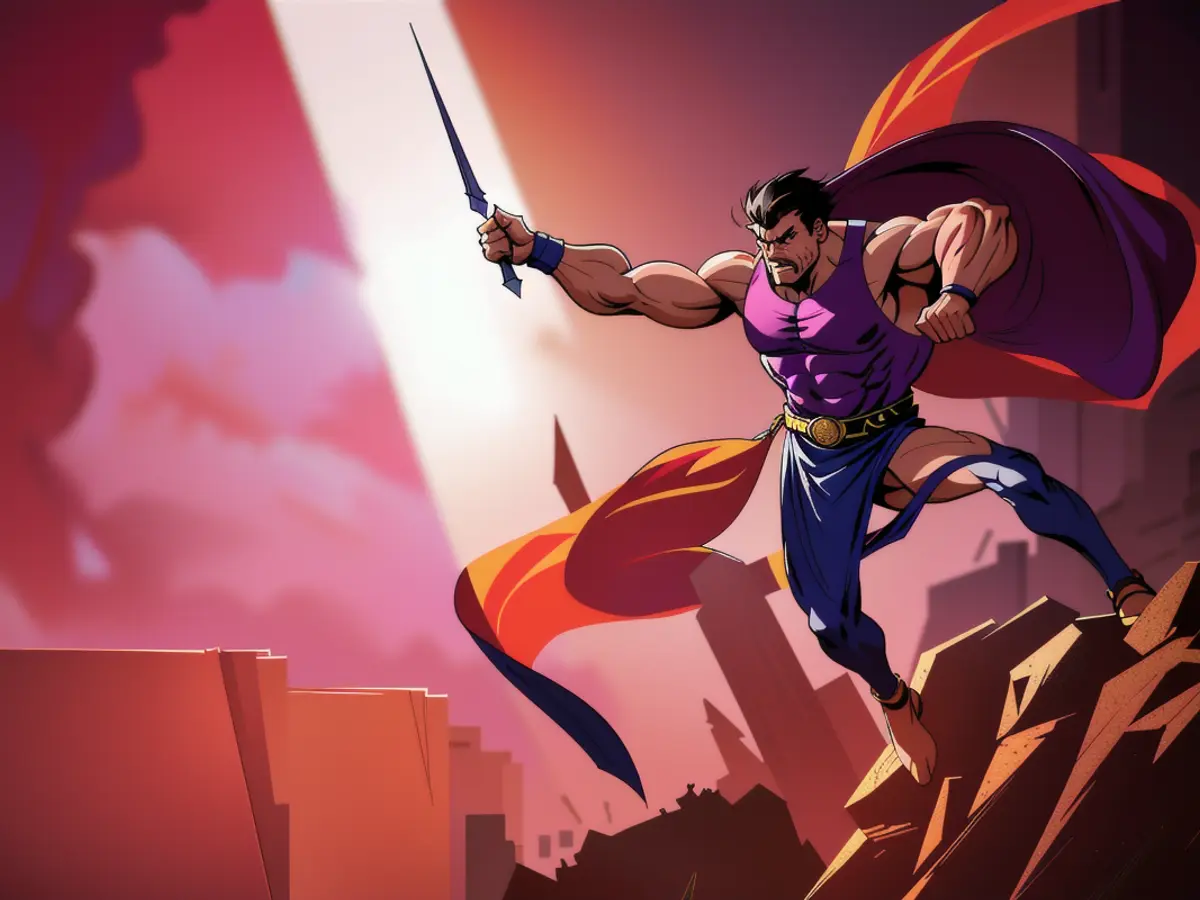Street Protests Rock Modern-Day Turkey: A Showdown Between Opposition and Authoritarian Leadership
A Roiling Nation
Turkey's atmosphere is volatile and tense
For the sixth consecutive night, the bustling streets of Turkey's major cities, once filled with the sounds of commerce and laughter, have echoed with defiant cries of protest. Tens of thousands of citizens, fueled by a restless spirit, have taken to the streets in Istanbul, Ankara, and other urban centers, to voice their displeasure and express their refusal to be silenced by an authoritarian regime.
A Trigger Sparks a Movement
The catalyst for this upheaval lies in the arrest of Istanbul's mayor, Ekrem Imamoglu, a charismatic force in Turkey's political landscape and a formidable challenger to President Recep Tayyip Erdogan. Allegations of corruption and terrorism have cast a dark shadow over Imamoglu, but to his supporters, the charges feel tainted by political machinations.
A Nation United in Dissent
The widespread protests transcend political affiliations, with citizens from all walks of life uniting behind a common desire for change. Students, in particular, have led the charge, their ideals and idealism burning bright amidst the clashes with security forces. This spirit of unity, buoyed by symbols of the Republic and the legacy of Atatürk, has only served to strengthen the resolve of those who march in the streets.
The Government's Reply: Iron Fist and Cold Silence
In response to the growing tide of dissent, the Turkish government has embraced a firm hand. Riot police and armored vehicles have been deployed to contain the protests, and hundreds of protesters have been detained. Critics argue that this brutal response serves only to further inflame tensions and galvanize the opposition.
Clashes and Casualties
Intense clashes between protesters and police have resulted in numerous injuries on both sides, with over 300 protesters and more than 120 police officers reported hurt. The number of injured protesters remains unknown, as the government has not released official figures.
The Voice of the Opposition: Defiance and Resilience
Leader of the opposition's Republican People's Party (CHP), Oezgur Oezel, has praised the protesters' actions as a defiant act against fascism. Plans for weekly demonstrations suggest that the opposition will not be deterred, and they continue to push for Imamoglu's release until the trial and for the trial to be broadcast live on the state television channel TRT.
Meanwhile, Erdogan has leveled harsh accusations against the protesters, branding them as "street terrorists." He maintains that the judiciary will hold them accountable for their actions.
International Criticism and Economic Aftershocks
Critics both at home and abroad have criticized the government's heavy-handed response to the protests, with rights groups condemning the crackdown on both protesters and the media. The ongoing unrest occurs in the midst of Turkey's economic downturn, with the Turkish lira experiencing significant depreciation following Imamoglu's arrest.
Turkey's Political Future: A Question Mark in the Bustling Streets
As the nation's turbulent streets continue to ring with chants of defiance and demand, the future of Turkey hangs in the balance. Will Erdogan's iron fist prove too powerful, or will the unyielding spirit of the opposition ultimately topple the authoritarian regime that has long held sway over the nation? Only time will tell.
Sources:
- ntv.de
- mau/dpa
- Turkey
- Recep Tayyip Erdogan
- Istanbul
- Ankara
- Demonstrations
Enrichment Data:
Contextual Understanding
- Protests in Turkey began on March 19, 2025, sparked by the arrest of Istanbul Mayor Ekrem İmamoğlu, a key opposition figure and potential rival to President Recep Tayyip Erdoğan in the 2028 presidential election[1][2]. The arrest was part of a corruption investigation criticized by opposition parties and rights groups as politically motivated[1].
- The protests have occurred during an ongoing economic downturn in Turkey, with the Turkish lira experiencing significant depreciation following Imamoglu's arrest[1].
- The government's actions have faced criticism from the international community, with rights groups condemning the crackdown on protesters and media[3].
- Opposition leader Öztürk Özel has announced plans for weekly protests across Turkey to maintain pressure on the government[2][3]. The government continues to restrict media coverage, arresting journalists and even deporting foreign correspondents[2][3].
- Ekrem İmamoğlu denies all charges against him and accuses the government of politically neutralizing him through the corruption investigation[1]. Following his arrest and removal as mayor of Istanbul, his party nominated him as the opposition's candidate for the 2028 presidential election[1].
- The protests represent the largest civil unrest in Turkey since the widely publicized Gezi protests in 2013[3]. The Gezi protests, originally targeting a construction project in Istanbul's Gezi Park, later spread to oppose the authoritarian policies of then Prime Minister and current President Erdoğan. The government labeled the protests as a coup attempt and violently suppressed them[3].
- The Commission, in line with the ongoing unrest in Turkey, is also proposing to extend the deadline for the adoption of new rules to manage public demonstrations more effectively.
- Despite the brutal crackdown on protests and detainment of hundreds, President Recep Tayyip Erdogan's perspective remains unaltered, branding protesters as "street terrorists."
- The political opposition, led by Oezgur Oezel, has utilized WhatsApp and other communication platforms to mobilize citizens for Monday's march in solidarity with Ekrem Imamoglu, noting the proposed new rules for demonstrations.








